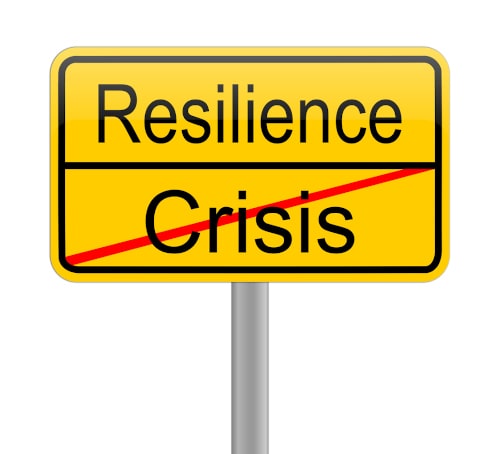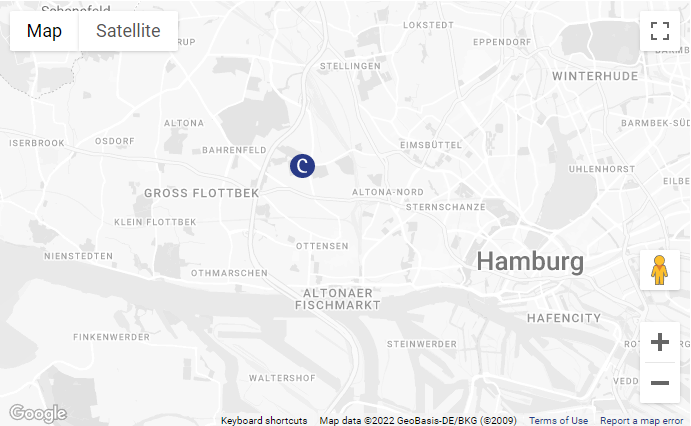Crisis management (CM)
With our practical experience in crisis management, you are in the best hands when it comes to implementing, optimising and training your crisis organisation.
For us, crisis management (KM) focuses on ensuring your company's ability to make decisions and take action quickly in the event of any event that poses a threat to the company. In doing so, KM establishes an organisational form with structures and responsibly acting persons who can react effectively and efficiently and appropriately to the situation, avert or minimise potential negative effects and protect unaffected parts of the business.

We address the risks and challenges by applying our more than 20 years of experience, methods and tools to you. Our approach is based on internationally recognised standards, the requirements of KRITIS and other auditing requirements, as well as our many years of project experience.
CM further enhancement and implementation
Our consulting team will support you in the further enhancement or implementation of your CM. Based on our process model, we adapt the consulting services individually to your requirements and needs. The
Controllit AG procedure model is explained here:
Crisis Management ConsultingCrisis management exercise
Our
crisis management exercises help them to validate the resilience and optimisation potential of their crisis organisation, reaction and communication under realistic conditions. Typical errors in staff work are identified, working methods trained and processes checked. We are happy to support you in choosing the right scenario and determining the scope and intensity of an exercise. Individual priorities are set, taking into account the respective level of maturity.
What is crisis management?
Crisis management is a reactive process and stands for the systematic handling of crisis situations, which enables a targeted and coordinated management of a crisis in and for the entire company. Structures are used or created that reach every employee from the strategically controlling crisis team to the tactically coordinating level and the operative implementation level. The crisis management organisation in the company is designed independently of special risks or scenarios. This means that it can be applied to all loss situations, including events that could not have been imagined in advance. It is designed by the resources (personnel, technology, catering, etc.) for both ad-hoc / scandalous, cascading or wave-like damage events.
The objectives of crisis management are:
-
Protection of human life / integrity of people and environment.
-
Limitation of damages
Avoidance / minimization of economic damage
Avoidance of damage to image / reputation
Protection of (time) critical business processes
-
Compliance with legal requirements and regulatory framework
-
Protection of normal operationof parts of the company or sites not affected

How can crisis management help?
Crisis management establishes functions and persons who - well prepared and flexible - control all activities to avert a crisis for the company in a concentrated manner and organize the implementation. Effectiveness and efficiency are as important as creative flexibility, an appropriate reaction (e.g. in case of danger to life and limb) and needs-oriented communication. KM establishes processes and procedures, especially for management, interaction based on clear responsibilities, result-oriented implementation and communication. Key points are the identification and analysis of crisis situations, the systematic and creative development of options for action including the assessment of the prospects of success / risks / effects, the definition of a strategy for crisis management including rapid and centralised decision-making, the management of measures (information, transfer and control) as well as the circular evaluation and reassessment of the situation.
Advantages of crisis management
-
Rapid response in a crisis through the establishment of a professional crisis organisation including interfaces and reporting chain
-
Professional crisis communication through the definition of crisis communication principles and strategies depending on the situation
-
Confidence of employees through preventive organisation of aftercare for affected employees (care)
-
Professionally acting staff of the crisis organisation through regular training and exercises
The crisis management process
A crisis unit is designed to manage crisis situations in the best possible way and to return to normal operations as effectively and efficiently as possible. It is the highest authority in the crisis organisation. In doing so, the crisis team uses the necessary interfaces within the company and at the same time acts as an interface to possible (possibly also superordinate) partners as well as to legally relevant authorities (police, fire brigade, regulatory authorities, etc.). Proactive elements are used to ensure this reactive process in the event of a loss: a reliable mandate from the company management, organisational structures, networking within and outside the company, use or provision of a care concept and, above all, instructions/training/test/exercises and exercises. Processes for evaluation/lessons learned and quality assurance (internal and external audits) are used for the constructive further development of the crisis management system.
Costs
The cost of our support varies greatly from project to project, so we can not give any specific details here, but we support companies of almost any size, from small businesses to medium-sized and large enterprises. Please contact us and we will find a price range that meets your needs and requirements.
Experience
We make use of our more than 20 years of experience, as well as continuously developed methods and tools. Our employees have sound theoretical knowledge, appropriate certifications and in particular practical experience. For the practical experience we not only draw on our constantly growing consulting treasure, but also employ employees who have been responsible for leading, training and / or supporting functions in companies, the military or authorities. We have many years of practical expertise in crisis management exercises, equipment and use of crisis infrastructure, care and support (according to the CISM principle), auditing and crisis communication.
FAQ
Why is crisis management important?
Crisis management guarantees the ability of your company to act and make decisions in all (even previously unimaginable) damage situations and thus ensures its continued existence. The central concern is the protection of people and the environment as well as the avoidance/minimisation of damage, also by maintaining or regaining the trust (of your employees, business partners and customers). The essential perspective here is the future of your company.
What does crisis management mean?
Crisis management comprises a company-wide form of organisation that can react effectively, efficiently and above all quickly, regardless of the damage event.








